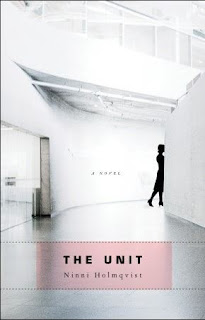When an unexpected school trip to the Birmingham Clothes Show sees gawky Harriet being scouted by a top modelling agency, she must choose between her life of trigonometry, daily roastings from the school bully and avoiding her weird stalker or a life of glamour, photoshoots and fame. The only catch is she has zero interest in fashion. And really a questionable, cartoon-based wardrobe. Harriet would rather watch documentaries about the Bolshevik Revolution and Humpback Whales than watch any kind of fashion show. It also means a pretty big betrayal of best mate Nat, who has been priming herself for model-dom for the last 10 years. Dream thievery at its most painful.
I kind of had mixed feelings about the book, though I really liked the characters and it read really nicely. It's funny, it's warm, the family dynamic is good. Being a fellow fact fan, I also appreciated the little chunks of trivia, as well as the comforting lists and plans. Harriet is your usual fish out of water with A Lesson To Learn, a bit like Mia from the Princess Diaries- self deprecating, accident prone, no idea what she's doing and still in the process of a priority overhaul. It's easy to relate to her as she tries to make the people that have shown faith in her proud- and everybody has wondered at some point or another what it's like to be somebody else, and here is a once in a lifetime opportunity for a total life transformation.
It's well written, the characters are real, the flaws and the unique little habits they all have are believable. I found myself really liking the inherently sensible, dream crushing stepmother Annabel because she knows Harriet is too good, too smart and too full of promise for such a fickle, damaging industry. She talked sense and had a lid on everything that was happening, even if at the time it seemed like she was being a heartless, joy murdering witch. The book's heart is in the right place, but I just found that the ending left a really funny taste in the mouth. It was promising right up to the final pages.
Throughout the book, Harriet has been on an emotional journey of discovery. She's learned the hard way that it's what you're like, not what you look like that is important in life. She's denounced the "freedom of expression" myth that the fashion industry has created and has decided that it's better to be yourself than to mindlessly parrot prepared phrases and wear whatever some designer throws at you. That's all well and good, and I was convinced that this was going to be an excellent "don't let sacrificing yourself be the price of success" story. When it's revealed that it's Lion Boy Nick that decided she was the next big face and not Wilbur, Harriet is amazed. She's bowled over with joy and brimming with lust for Lion Boy. She's not at all creeped out by a total stranger deciding that she was "The Right Girl" and flying her across the world to him, changing her entire image and throwing her into a series of events that she seems pretty uncomfortable with. A person that's been aloof, surly, borderline bored and prone to disappearing acts at inopportune moments. Why is Harriet so enamoured with him? Well, he's really really, ridiculously good looking. I'd convinced myself by now that Harriet had more depth and integrity than that. She's too good for such superficiality. She's a future palaeontologist for crying out loud.












